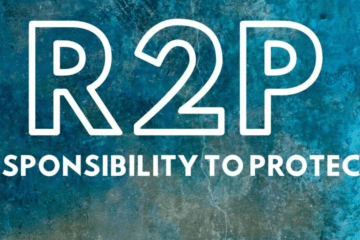
This article is written by Gungun Roy of 8th Semester of Sister Nivedita University, Kolkata, an intern under Legal Vidhiya
ABSTRACT
Cryptocurrencies, powered by blockchain technology, have significantly changed the global financial landscape by creating decentralized and borderless digital assets. While they promote innovation and democratize access to financial services, they also introduce complex regulatory challenges that vary internationally. This article explores the difficulties of regulating cryptocurrencies on a global scale, including jurisdictional conflicts, lack of standardization, and enforcement barriers. It reviews existing regulatory frameworks, points out their strengths and weaknesses, and identifies critical gaps that may hinder effective oversight. The article recommends strategies for cohesive regulation, such as establishing international regulatory bodies and harmonizing standards. Ultimately, the paper emphasizes the importance of international cooperation in addressing these challenges. Achieving a balance between innovation and security is essential to combat fraud, money laundering, and other illicit activities, ensuring a stable and secure financial environment for all participants.
KEYWORDS
Cryptocurrency, Blockchain, Regulation, International Law, Jurisdiction, Money Laundering, Financial Innovation, Global Governance.
INTRODUCTION
The advent of cryptocurrencies, starting with the launch of Bitcoin in 2009, has dramatically transformed the landscape of financial systems by facilitating secure and direct peer-to-peer transactions without the need for intermediaries like banks or payment processors. As of 2025, the global cryptocurrency market has grown to exceed $2 trillion, drawing in a diverse array of participants, including technology enthusiasts, retail investors, and large institutional players looking for new opportunities in this burgeoning financial sector. Despite the opportunities presented by cryptocurrencies, their decentralized nature introduces substantial challenges for governments and regulators across the globe. This lack of central authority makes it difficult to monitor transactions, assess tax liabilities, and implement protective measures for consumers, thus complicating the regulatory environment.
Regulating cryptocurrencies is vital for several reasons. Primarily, effective regulation can help prevent illicit activities such as money laundering, terrorist financing, and tax evasion, which can undermine the integrity of financial systems. Additionally, a well-structured regulatory framework can encourage innovation while ensuring that consumers are protected from potential fraud and market manipulation. However, the task of creating a balanced regulatory approach on an international level presents numerous obstacles. Different countries have varying legal frameworks, economic interests, and technological capabilities, which can lead to inconsistencies in how cryptocurrencies are regulated. For instance, some nations have embraced cryptocurrency and blockchain technology, promoting them as tools for economic growth, while others have imposed strict bans or limitations due to concerns over risk and security.[1].
This article delves into the multifaceted challenges of regulating cryptocurrencies, examining the limitations of current regulatory approaches that often struggle to keep pace with the rapid evolution of the technology. It also discusses potential pathways for developing a comprehensive and cohesive regulatory framework that balances the need for oversight with the importance of fostering innovation in the cryptocurrency space.
LACK OF A UNIFIED INTERNATIONAL LEGAL FRAMEWORK
One of the primary challenges in regulating cryptocurrency globally is the absence of a standardized international legal framework. Unlike traditional financial systems, which operate under well-established regulatory systems in each country, cryptocurrencies transcend national borders. They operate on decentralized networks without a central authority, which complicates enforcement. While some countries have developed their regulations, such as the U.S. Securities and Exchange Commission (SEC) regulating certain cryptocurrencies as securities, others have taken a more hands-off approach. Without a global consensus on how to regulate cryptocurrencies, the risk of regulatory arbitrage increases, where businesses or individuals relocate to jurisdictions with more lenient laws. This fragmented approach not only undermines the effectiveness of regulation but also creates confusion for businesses and investors.[2].
UNDERSTANDING THE REGULATORY LANDSCAPE
The Nature of Cryptocurrencies – Cryptocurrencies operate on decentralized blockchain networks, which means that no single central authority has control over them. This structure provides several benefits, including increased security against fraud and hacking, as well as reduced transaction costs compared to traditional financial systems. However, the decentralized nature of cryptocurrencies also presents significant challenges for regulatory bodies. Traditional regulatory frameworks rely on clearly defined jurisdictional boundaries to enforce laws and regulations. The global and borderless nature of cryptocurrencies complicates these efforts, as it can be difficult to determine which authority has jurisdiction over a specific transaction or entity. This creates a complex environment for regulation, requiring new approaches and adaptations to adequately address the unique characteristics of digital currencies.
Existing Regulatory Frameworks – Countries have adopted varied approaches to cryptocurrency regulation.
- Permissive Frameworks – Nations like Switzerland and Singapore encourage cryptocurrency innovation by providing clear guidelines and tax incentives.
- Restrictive Frameworks – Countries like China and India have imposed bans or heavy restrictions to mitigate financial risks and capital flight.
- Ambiguous Frameworks – Many jurisdictions, including the United States, have yet to adopt comprehensive cryptocurrency regulations, leading to uncertainty.
These divergent approaches highlight the lack of global consensus, creating an uneven playing field and regulatory arbitrage opportunities.
KEY LEGAL CHALLENGES IN INTERNATIONAL CRYPTOCURRENCY REGULATION
Jurisdictional Conflicts – Cryptocurrency operates beyond the confines of national borders, creating complex legal challenges regarding which country’s regulations govern cross-border transactions. This ambiguity arises because cryptocurrencies and decentralized exchanges facilitate direct transactions between users in different jurisdictions without the need for intermediaries.
For instance, consider a scenario where two parties, each located in different countries, engage in a transaction through a decentralized exchange. In this case, determining the applicable laws becomes intricate, as these exchanges often lack a centralized authority that could be held accountable for compliance with financial regulations. As a result, the enforcement of anti-money laundering (AML) and know-your-customer (KYC) regulations is significantly complicated. Without clear jurisdictional guidelines, it becomes difficult for authorities to monitor and prevent illicit activities, potentially allowing individuals to exploit these cryptocurrencies for money laundering or other illegal purposes. This situation underscores the necessity for a cohesive international regulatory framework to address the unique challenges posed by digital currencies.
Lack of Standardization – The regulatory frameworks governing cryptocurrencies across the globe exhibit significant inconsistencies. Different countries have adopted varying definitions of what constitutes a cryptocurrency, leading to confusion in its classification. For instance, some jurisdictions categorize cryptocurrencies as commodities, while others designate them as securities or currencies. Additionally, the taxation policies applied to cryptocurrency transactions differ widely from one region to another, with some nations imposing capital gains taxes. In contrast, others treat them as currency exchanges or even offer tax exemptions.
This lack of uniformity creates substantial challenges for international cooperation and enforcement efforts, making it difficult for regulatory bodies to monitor and control illicit activities that may involve cryptocurrencies. Moreover, these discrepancies can lead to regulatory arbitrage, where businesses and individuals seek out jurisdictions with more favorable regulations, complicating the landscape of cryptocurrency regulation further. Consequently, there is an urgent need for a harmonized approach to cryptocurrency regulation that promotes consistency and clarity across borders.
As a result, regulators face a complex challenge in maintaining a balance between upholding citizens’ rights to privacy and ensuring effective measures are in place to prevent and investigate criminal activities. Striking this balance is crucial; regulators must navigate the nuanced landscape of digital currencies while considering the implications for both security and personal freedoms. This ongoing tension between privacy advocacy and crime prevention remains a significant topic of discussion within financial and regulatory communities.
Enforcement Barries – The decentralized nature of cryptocurrencies presents significant challenges for regulators trying to impose penalties or effectively freeze assets associated with illicit activities. Unlike traditional financial systems, where central authorities can intervene and take action, cryptocurrencies operate on a peer-to-peer network that lacks a governing body. This makes it difficult for regulators to track and control transactions.
Moreover, decentralized exchanges (DEXs) facilitate trading directly between users without a central authority, further hindering oversight. DEXs allow for anonymous and peer-to-peer transactions, making it challenging for regulators to monitor trading activities and intervene when necessary. As a result, the combination of these technologies creates a regulatory landscape that is difficult to navigate, complicating efforts to maintain compliance and enforce legal measures.
Technological Evolution – The pace of technological advancements is increasingly outstripping the development of regulatory frameworks. Innovations such as decentralized finance (DeFi), non-fungible tokens (NFTs), and layer-2 scaling solutions are transforming the landscape of finance and digital assets, introducing unique challenges and complexities. These developments necessitate the creation of adaptive regulatory mechanisms that can effectively address the rapid changes and ensure consumer protection, market integrity, and financial stability. As these technologies evolve, regulators must remain agile and proactive to keep up with the implications and risks associated with these innovations.[3].
STRATEGIES FOR EFFECTIVE INTERNATIONAL REGULATION
Harmonizing Definitions and Standards – Establishing universal definitions and standards for cryptocurrencies is of paramount importance in today’s rapidly evolving financial landscape. As digital currencies gain popularity and adoption across the globe, inconsistencies in their regulation and classification can lead to confusion and potential risks for investors and users alike. International organizations such as the Financial Action Task Force (FATF) and the International Monetary Fund (IMF) are ideally positioned to take the lead in these endeavors.
By collaborating with member countries, regulatory bodies, and industry stakeholders, these organizations can develop a comprehensive and cohesive framework that addresses key areas such as classification, security measures, and compliance requirements. This framework would not only promote transparency and accountability but also foster trust among users and investors, ultimately supporting the sustainable growth of the cryptocurrency market. Such standardized regulations can help mitigate risks associated with fraud, money laundering, and other illicit activities, paving the way for a safer and more stable financial ecosystem.
Enhancing Cooperation and Information Sharing – Cross-border cooperation among various stakeholders, including regulators, law enforcement agencies, and financial institutions, plays a crucial role in strengthening oversight and enforcement measures. This collaborative approach is essential for effectively addressing the complexities of financial crimes in today’s globalized economy.
Platforms such as the Egmont Group serve as vital resources by facilitating information sharing and collaboration among member countries. This network allows law enforcement and financial intelligence units to exchange critical information and best practices, thereby enhancing their ability to combat financial crimes, particularly those involving cryptocurrencies. As digital currencies continue to gain popularity, the role of such organizations becomes increasingly important in identifying and mitigating risks associated with money laundering, fraud, and other illicit activities in the cryptocurrency space.
Leveraging Technology for Regulation – Regulators have the opportunity to leverage advanced blockchain analytics tools to enhance their oversight of cryptocurrency transactions. These tools are essential for monitoring financial activities on the blockchain, allowing regulatory bodies to detect suspicious patterns and identify potential illicit activities, such as money laundering or fraud. For instance, platforms like Chainalysis offer comprehensive insights into the movement of cryptocurrencies, enabling regulators to trace the flow of funds across different wallets and exchanges. By adopting these technologies, regulatory agencies can improve compliance with financial regulations, deter criminal behavior, and promote a safer environment for digital asset transactions.
Public-Private Partnerships – Collaboration between governments and industry stakeholders plays a crucial role in fostering innovation while effectively addressing regulatory concerns. By working together, these entities can leverage their unique strengths and insights to create an environment that not only encourages technological advancement but also ensures compliance with necessary regulations.
Public-private partnerships are particularly effective in this regard, as they allow for the development of best practices tailored to specific industries. These partnerships can lead to the creation of self-regulatory mechanisms that empower businesses to uphold standards without the need for extensive government intervention. Additionally, they can facilitate the design of compliance tools that help companies navigate complex regulatory landscapes more efficiently. Through these collaborative efforts, both public and private sectors can drive meaningful progress while maintaining a strong focus on accountability and safety.
Adapting to Technological Change – Regulators must proactively keep up with rapid technological advancements by prioritizing investments in research and capacity building. These efforts are essential to understanding emerging technologies and their implications for society. One effective approach to fostering innovation while ensuring compliance is the implementation of regulatory sandboxes. These controlled environments allow companies to experiment with blockchain innovations in a supervised setting, facilitating collaboration between regulators and innovators. By doing so, regulatory sandboxes not only help to identify potential risks and challenges but also support the development of clear and adaptable regulatory frameworks that can accommodate new technologies. This approach enables a balance between encouraging innovation and upholding necessary compliance standards, ultimately leading to a safer and more robust technological landscape.[4].
CONCLUSION
Regulating cryptocurrencies at an international level is a multifaceted and essential undertaking that requires careful consideration of various factors. The decentralized and borderless characteristics of cryptocurrencies challenge traditional regulatory frameworks, which were originally designed for centralized and location-specific entities. This disparity necessitates the development of innovative and cooperative approaches to regulation that can effectively address the unique issues presented by digital currencies. Despite some progress made by current regulatory frameworks, there are still significant gaps that need to be filled. One major challenge is jurisdictional conflict, where different countries may have competing regulations that create confusion and hinder compliance. Additionally, there is a lack of standardization in how cryptocurrencies are classified and treated across various jurisdictions, which complicates enforcement and compliance efforts. To achieve effective regulation, it is crucial to establish harmonized global standards that can be uniformly applied. This requires enhanced international cooperation among regulatory bodies, as well as engagement with stakeholders in the cryptocurrency industry, including exchanges, developers, and users. Furthermore, embracing advanced technologies, such as blockchain analytics and artificial intelligence, can aid regulators in monitoring transactions and identifying illicit activities.
Ultimately, the future of international cryptocurrency regulation hinges on collaborative efforts to construct a robust and adaptive regulatory framework. Such a framework should prioritize principles of financial inclusion, transparency, and stability, ensuring that the evolving landscape of digital currencies is both safe and beneficial for users worldwide.
REFERENCES
- Advocate Tanwar, Legal Challenges in Regulating Cryptocurrencies a Global Perspective, Advocate Tanwar, (Last visited January 20, 2025) https://advocatetanwar.com/legal-challenges-in-regulating-cryptocurrencies-a-global-perspective/
- Praneel Panchagavi, Legal Challenges and Issues in Regulation of Cryptocurrency in Regulation in India: A Critical and Exploratory Analysis, Jus Corpus, (Last visited January 20, 2025,) https://www.juscorpus.com/legal-challenges-and-issues-in-regulation-of-cryptocurrency-in-india-a-critical-and-exploratory-analysis/.
- Aditya Narain, Marina Moretti, REGULATING CRYPTO, F&D, (Last visit February 4, 2025) https://www.imf.org/en/Publications/fandd/issues/2022/09/Regulating-crypto-Narain-Moretti.
- Akanksha Singh and Sharan Chawla, Cryptocurrency Regulation: Legal Issues and Challenges, A&V Publication, (Last visited February 4, 2025) https://anvpublication.org/Journals/HTMLPaper.aspx?Journal=International+Journal+of+Reviews+and+Research+in+Social+Sciences%3BPID%3D2019-7-2-13.
- Grey Brownstein, Three challenges in cryptocurrency regulation, Atlantic Council, (Last visited February 4, 2025) https://www.atlanticcouncil.org/blogs/econographics/three-challenges-in-cryptocurrency-regulation/.
- Xihan Xiong and Junliang Luo, Global Trends in Cryptocurrency Regulation: An Overview, Cornell University, (Last visited February 4, 2025) https://arxiv.org/abs/2404.15895.
[1] Praneel Panchagavi, Legal Challenges and Issues in Regulation of Cryptocurrency in Regulation in India: A Critical and Exploratory Analysis (11th Sept 2022), (Last visited January 20, 2025, 12.05 pm) https://www.juscorpus.com/legal-challenges-and-issues-in-regulation-of-cryptocurrency-in-india-a-critical-and-exploratory-analysis/.
[2] Akanksha Singh, Sharan Chawal, International Journal of Reviews and Research in Social Sciences, 7(2) ISSN, 365-375(2019).
[3] Akanksha Singh, Sharan Chawal, International Journal of Reviews and Research in Social Sciences, 7(2) ISSN, 365-375(2019).
[4] Advocate Tanwar, Legal Challenges in Regulating Cryptocurrencies a Global Perspective, (11th Sept 2022), (Last visited January 20, 2025, 12.21 pm) https://advocatetanwar.com/legal-challenges-in-regulating-cryptocurrencies-a-global-perspective/.
Disclaimer: The materials provided herein are intended solely for informational purposes. Accessing or using the site or the materials does not establish an attorney-client relationship. The information presented on this site is not to be construed as legal or professional advice, and it should not be relied upon for such purposes or used as a substitute for advice from a licensed attorney in your state. Additionally, the viewpoint presented by the author is personal.




0 Comments